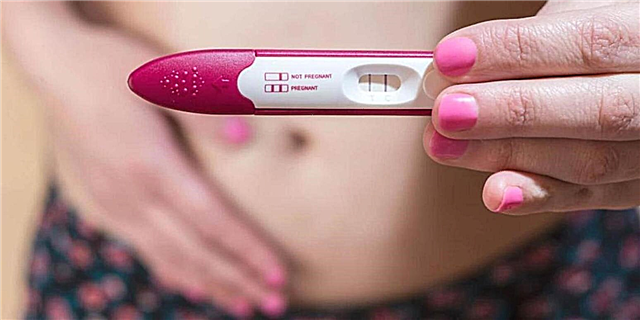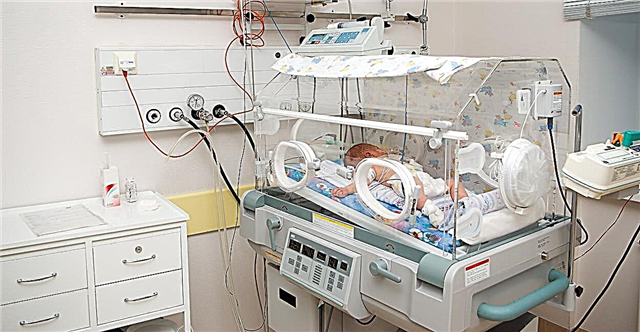
Pregnant women are particularly suspicious, and therefore any deviation from the norm in the analyzes can cause real panic in the expectant mother. One of the most common frightening phenomena for women is the appearance of sugar in the urine. What is the reason for this and what the consequences for a pregnant woman and her child may be, we will tell you in this article.

Norms and deviations
Glucose is very important for the human body, it provides it with the necessary energy. Double glucose is necessary for a woman during the period of bearing a baby. Together with vitamins, minerals and oxygen, glucose enters the baby through the uteroplacental blood flow from the mother's blood, and therefore the blood sugar level of a pregnant woman may be slightly elevated, within the upper limit of the norm.
In a healthy person there should be no sugar in urine at all, because all glucose is completely absorbed through the renal tubules.
An insignificant amount of glucose in the secreted fluid is also not a reason for panic, it is often not possible to detect it at all during a general urine test.

Approximately every tenth mother-to-be has short-term increases in urine sugar levels, they are one-time, single and are not a cause for alarm. The norm, due to the characteristics of the period of bearing a child, is considered the indicator is not higher than 1.7 mmol / liter.
In the second and third trimesters of pregnancy, the concentration of sugar in the urine in an amount of no more than 0.2% is considered permissible.
Diagnostics
A woman takes urine for analysis at every visit to the doctor, and therefore an increase in sugar in it or the detection of traces of glucose will certainly become obvious. In this case the attending physician will prescribe additional examination, whose task is to establish whether the increase in glucose levels is physiological and harmless, or is it a sign of the development of a disease.
A woman will have to donate blood for sugar on an unscheduled basis, a blood test for hormones (in particular, for the content of thyroid hormone in order to establish the characteristics of insulin production), as well as a clinical blood test, in which they will look for glycated hemoglobin.


The amount of glucose in secondary urine is directly related to blood sugar levels, as shown in the following table:
Women who, during repeated tests, have confirmed increased sugar values, are prescribed a special test - a test for glucose tolerance. The glucose tolerance test is performed on an empty stomach. The woman is offered a glass of glucose diluted with water, and the result is assessed after 2 hours. If after this time in the capillary blood of the pregnant woman the sugar level is higher than 6.8 mmol / liter, then diabetes will be suspected.
If the glucose tolerance test is successful, the expectant mother will be referred for a consultation with a nephrologist and endocrinologist in order to exclude diseases of the kidneys and some important glands.

Causes of increased sugar
The reasons for the increased sugar content in the urine of the expectant mother can be both completely natural and pathological. Let's consider both scenarios.
Physiological causes
The organism of the expectant mother "cares" not only about its energetic well-being (and the pregnant woman needs much more energy!), But also about providing the baby with glucose, who needs energy for the growth and formation of organs and systems. That is why the mode of glucose accumulation "for a rainy day" is switched on in the mother's body. That is why the sugar content may be high.
A woman's diet and lifestyle can affect the appearance of sugar or its traces in the urine. If she rests a little, gets nervous a lot, eats a large amount of sweets, then there is nothing surprising in the fact that urine analysis will show some amount of glucose in the secreted fluid.

Pathological causes
The appearance of sugar in the urine can be a signal of kidney problems. If the renal tubules cannot cope with the "utilization" of excess glucose, then it enters the secondary urine, which is submitted for analysis.
High sugar levels in both urine and blood may indicate the presence of diabetes mellitus. Many women do not even suspect that they have had problems with glucose absorption for a long time, and only during pregnancy, when the load on the body increases tenfold, it becomes obvious.
Another problem is pregnancy diabetes or gestational diabetes. It occurs already during gestation and in 99% of cases it disappears a couple of months after childbirth.
The problem may lie in the malfunctioning of the pancreas, which produces insulin, as well as in the dysfunction of the thyroid gland.

Symptoms
A woman may not feel anything out of the ordinary. But even if there are some symptoms, then most pregnant women habitually write them off to their condition, because the malaise in expectant mothers is a common thing, especially in the early and late stages.
If sugar is found in the urine, a woman should "listen" more carefully to her condition.

Pathological causes of high glucose levels in the body's fluid and blood may indicate the following symptoms:
- feeling of "weakness" for no apparent reason, chronic fatigue, decreased overall tone;
- increased sleepiness, even if a woman sleeps for a sufficient amount of time, and she has no problems sleeping;
- instability of body weight, which is manifested by either a decrease or an increase in weight for no apparent reason;
- appetite that is difficult to control;
- a constant feeling of dry mouth, thirst, which makes the expectant mother drink a large amount of liquid;
- frequent urination.
If such symptoms are found, the expectant mother should definitely inform the doctor about them, because diabetes, whatever it may be, can greatly harm the health of the mother, the condition and development of the fetus.

Possible consequences
An increased level of sugar in urine and blood, if it is not of a one-time short-term nature, in the absence of treatment and supervision by doctors, can greatly complicate the life of the expectant mother and her child.
First of all, the likelihood of gestosis in pregnant women increases tenfold. This condition, associated with edema and high blood pressure, poses a direct threat to pregnancy and can cause serious complications in the birth process.
Maternal diabetes is a risk factor for the development of the baby. It is known that high sugar in a pregnant woman can cause fetal malformations and abnormalities, which are incurable, total and in most cases fatal.

A high sugar level in a mother can provoke disorders of the respiratory system and function in a child, and also become a good prerequisite for the occurrence of neurological disorders in a baby.
In rare cases, a very dangerous consequence - congenital diabetes of newborns... In such babies, there is an absolute complete insufficiency of insulin, they are literally doomed to lifelong intake of a synthetic drug, since their own pancreas is not developed, underdeveloped or does not function.
Treatment
A pregnant woman can be treated in a hospital or at home. The doctor's decision will depend on the exact amount of sugar in the urine; at high and dangerous values, the pregnant woman may be hospitalized.
First of all, the nutrition of the expectant mother is adjusted. From her diet baked goods, pastry, sweets, chocolate, fruit juices will be excluded... Proteins, meat, fish, fresh vegetables, legumes, herbs, unsweetened homemade fruit drinks and compotes are recommended. Meals should be fractional and frequent, and should be eaten in small portions.
You will need to eat at least 5-6 times a day. Overeating is considered to be as dangerous as fasting, because in the case of untimely eating or skipping a meal, blood pressure can sharply drop, which will pose a threat of fetal death.

The obstetrician-gynecologist will pay special attention to monitoring the weight of the expectant mother. She should gain no more than a kilogram per week, otherwise the load on the body will be too high. At the same time, the pregnant woman will have to visit an endocrinologist and often control the sugar level in both urine and blood.
With gestational diabetes, doctors do not consider it advisable to prescribe medications, because in the overwhelming majority of cases this condition is temporary, it does not need correction with drugs, it is just a correct lifestyle and strict adherence to the prescribed diet.
In the process of treatment, it is important not to sit on the sofa in front of the TV, but to take long walks in the fresh air, engage in feasible physical activity, this will allow you to control weight.

If there is no physical activity, glucose is consumed by the body to a lesser extent. If they are, then energy requirements increase, and the likelihood that glucose will remain "in reserve" is minimal.
Treating gestational diabetes doesn't take as long as it might seem at first glance. If you follow all the recommendations, then sugar in urine and blood will return to normal after a few weeks. This does not mean that you can then relax and start eating cakes and chocolates again.
You will have to control yourself until the very birth in order to avoid a repeated rise in sugar in the tests.

Prevention
In order not to go on a therapeutic diet, it is better for a woman to prevent the appearance of high sugar in urine and from the very beginning to make sure that her nutrition is correct and her lifestyle is quite active.
It is important not to give up the tests recommended during the bearing of a child, although they are considered mandatory only conditionally. The Ministry of Health only recommends them. Refusal to donate urine or blood is a risk of missing deviations and putting the life and health of the baby in danger.
If you feel unwell and the symptoms described above, you should not wait for the next urine or blood test, but you should immediately contact the consultation and get a referral for an unscheduled examination. The sooner you manage to bring glucose levels under control, the less likely it is that there will be negative consequences for the mother and her baby.


In the following video, you will find information on glucose levels during pregnancy.



